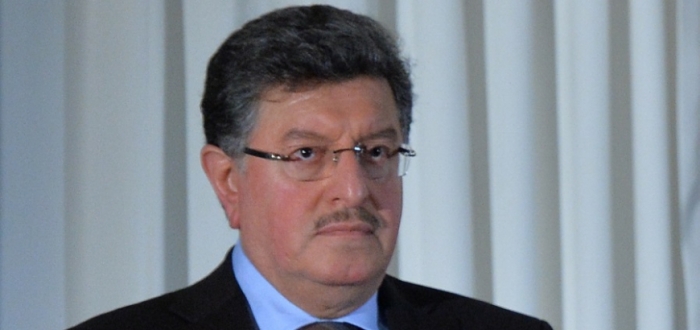The official spokesman for the Syrian opposition’s High Negotiations Committee, Salim al-Muslat, said that discussing the constitution or its amendments in the current Geneva negotiations, before discussing the political transitional period, would be “useless.”
In an interview in Geneva, Muslat said that the opposition delegation believes “the real agenda should start with the fully-empowered transitional governing authority and discussion of Assad’s role. Discussion of the constitution comes later.”
He said: “The mission of the transitional authority (which the opposition wants formed) which includes domestic parties and from the regime whose hands are not stained with Syrian blood, and the opposition – its mission is to call for a general national conference from which will emerge a constituent assembly, which will draft the Syrian constitution.”
He stressed that the question of the constitution “is for Syria, and is the responsibility of Syrians, and it is impossible for anyone else to draft it in any other place, and impossible for other parties to discuss it – the Syrian people are the ones who will discuss it.”
Muslat added: “If we were to discuss the constitution and its amendments at this stage, in this place (Geneva), it would be useless. What is useful is finding salvation from the nightmare in Syria, saving the lives of Syrians, securing the return of those who fled, and lightening the burden on neighboring countries. When Syrians are in Syria, then the constitutional discussion can be held.”
He added that UN envoy Staffan de Mistura “has a real vision for the transitional phase (which the opposition wants), and much will follow from that.”
Muslat denied that “there is any pressure so far from de Mistura — in fact, the discussion is around the agenda.” He likewise denied that the opposition “had come to withdraw from the negotiations, rather it came to negotiate.”
He continued, saying: “The current round is a round for discussing the political transition, and anything else is a waste of time. This is the third round so far. Discussion of the fully-empowered transitional governing authority has to begin. The opposition delegation is ready for that, and the negotiating delegation presented (in a session on Wednesday) its vision for the transitional phase.” He did not add details about this vision.
He said there are great efforts from the international mediator regarding the talks, adding: “I don’t think that there are negative issues, but actually things are going positively. It was the round’s first day, which usually starts with presenting previous issues, but the last meeting will be held on Friday, and will enter into important issues more fully,” according to his description.
Regarding recent developments in Aleppo and the opposition’s position about the advance of the Islamic State group and the regime’s efforts to advance with Russian support, Muslat said that “everyone knows, and whoever is monitoring the events well sees, that there is a connection between the regime and ISIS. There is one agenda serving both. Some of them overlook that ISIS received Palmyra from the regime, and returned it to them, and in exchange ISIS moved toward Qalamoun (Damascus countryside).”
He added: “ISIS is present in Aleppo’s outskirts, but not in large numbers, while the regime is trying to strike moderate forces, including Aleppo, which is an important area. But the revolutionary factions and the Free Syrian Army are ready for anything. They know the plans which the regime and ISIS are playing out. We hope that there will be support for the revolutionaries of the area to enable them against the single enemy broken into two parts – the regime and ISIS – with one agenda and one orientation.”
Muslat refused to discuss the alternative plan if the negotiations fail, saying that: “We do not want to talk about a Plan B – the soldiers are better-suited to talk about that. We will speak about Plan A, which we are in, and we hope a political solution will come in Syria. But if we arrive at a dead end, the revolutionaries in Syria will have a say, and we hope that friendly nations will stand alongside the word of the Syrian people in the end.”
This article was translated and edited by The Syrian Observer. Responsibility for the information and views set out in this article lies entirely with the author.


